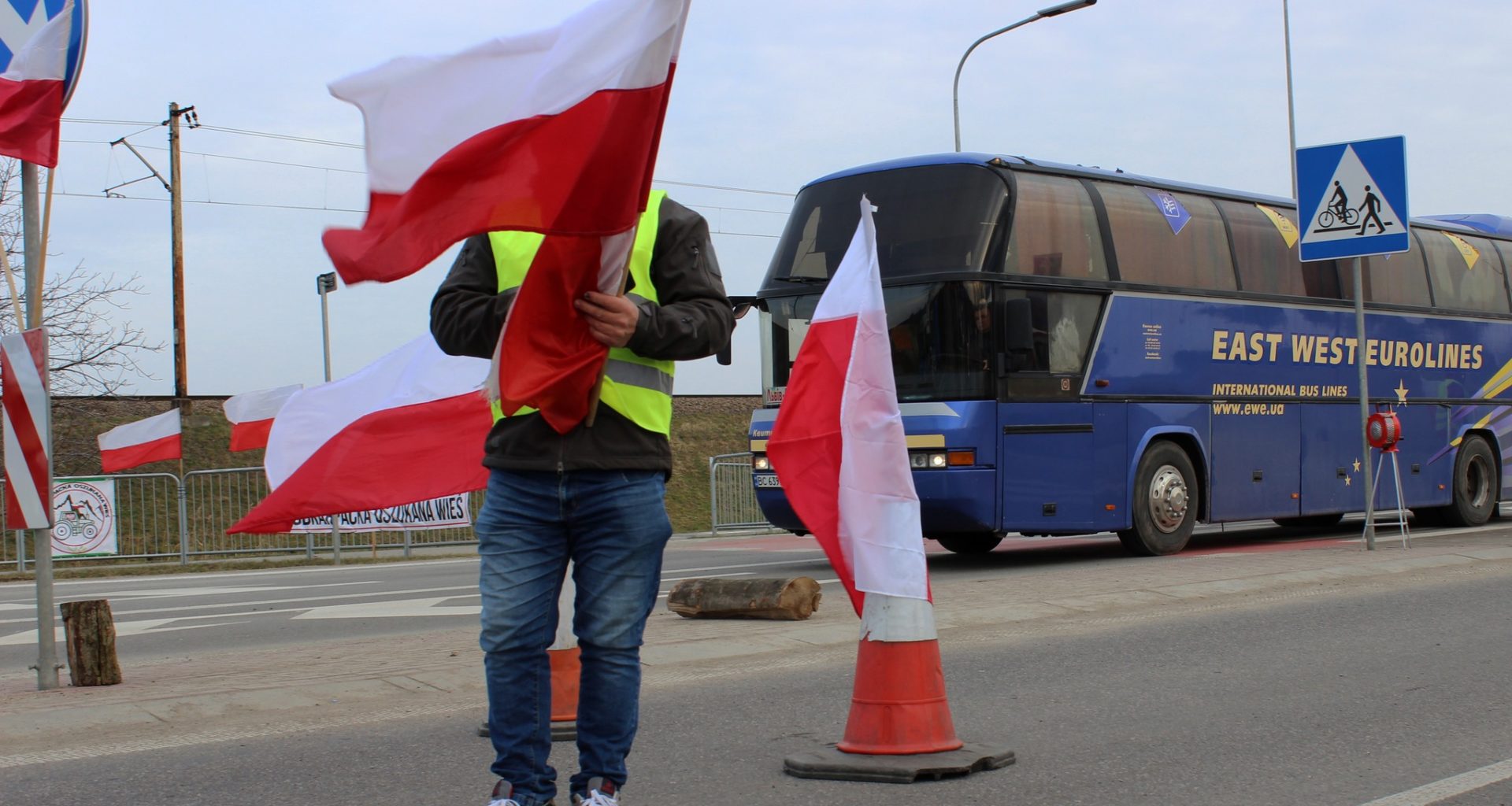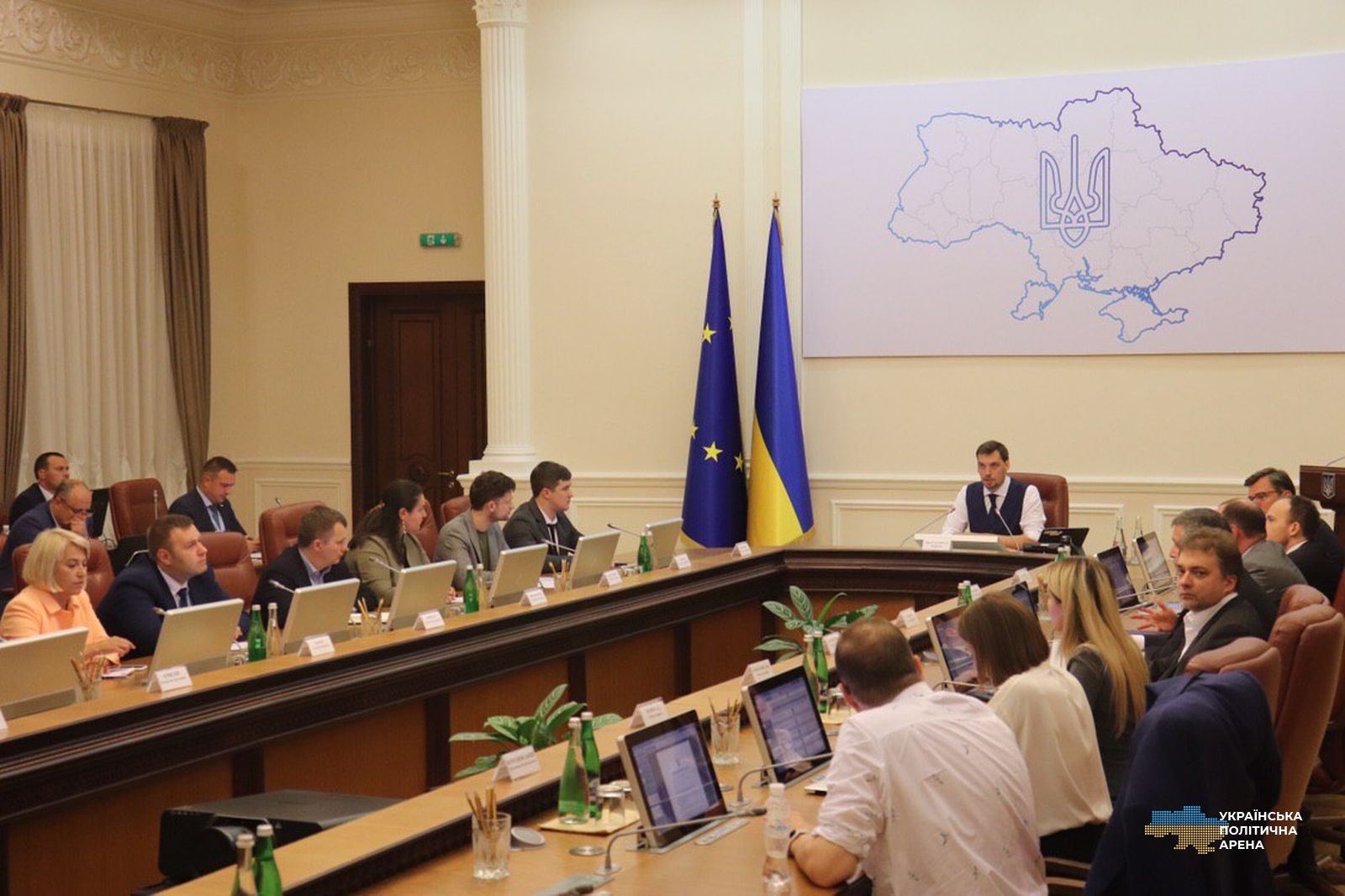Protests of Polish farmers against Ukrainian food imports have been ongoing since November 2023. Cargo traffic has fallen to a standstill as Polish opponents of trade liberalization with Ukraine blockade the border for lorries, increasing Ukrainian drivers’ waiting times to several weeks. Ukraine’s war-ravaged economy is taking a blow, but despite staunch support for Ukraine, the Polish protesters are adamant to keep blocking traffic, to the tacit support of Polish authorities.
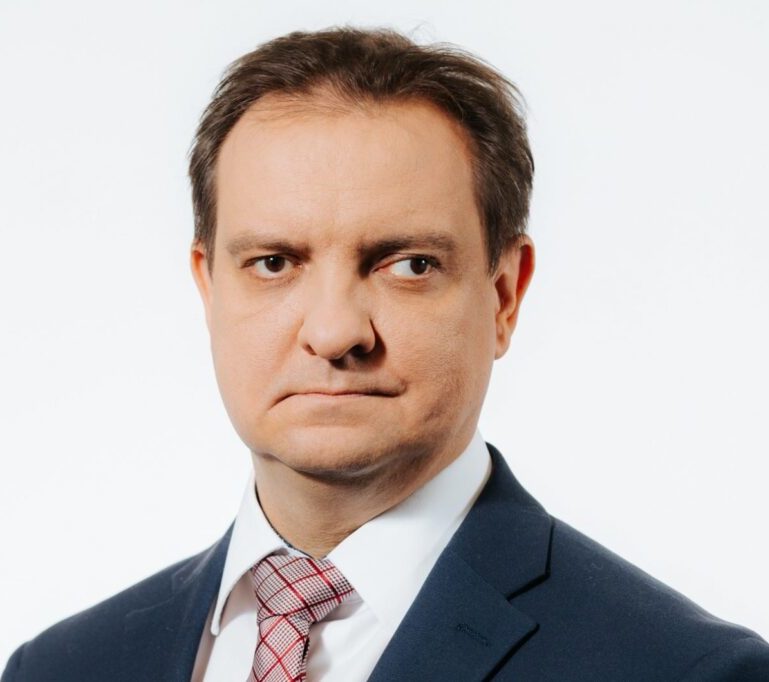
As Ukrainian and Polish officials fail to resolve the tensions and three checkpoints remain blocked (as of 15 April), we talk to Piotr Soroczyński, the chief economist and director of the Economic Policy Office at the Polish National Chamber of Commerce, former Deputy Minister of Finance, and CEO of the Export Credit Insurance Corporation (KUKE), to understand why Polish farmers protest, what Polish authorities want, and why they are irritated by Ukraine.
EP: Why doesn’t importing food from Ukraine benefit Poland if it is much cheaper?
Piotr Soroczyński: The problem is complex. To maintain stability, each country tries to produce at home the goods that are critical for the survival of society. The pandemic and now the war show that thinking that everything can always be bought abroad is very naïve.
In March 2020, when we asked our Chinese partners about respirators, masks, etc., they answered that they could deliver them in October, while we needed this equipment right now. The same is true for energy, some raw materials, and food. Not having your own production base is very irresponsible. One day, a foreign supplier will be willing to sell us something cheaply, but if the situation changes a year later, who will feed our society?
The majority of countries produce their own food and protect their own farmers. It would not be fair to turn away from them just because it is currently cheaper elsewhere.
This problem does not only concern imports from Ukraine. Farmers in France or Spain protest against the opening of their markets to import from South America or Morocco. In the European Union, the requirements for crop and animal production are very high. Thus, the costs are much higher compared to countries that do not have such strict restrictions, e.g. limitations on the use of pesticides.
The majority of countries produce their own food and protect their own farmers. It would not be fair to turn away from them just because it is currently cheaper elsewhere.
director of the Economic Policy Office at the Polish National Chamber of Commerce
Suppose the European Union decided to introduce high standards, and the Green Deal is to raise them further. In that case, the parallel admission to the single market of agri-food production done without meeting these standards, and thus much cheaper, is unfair to farmers in the EU, and it is hardly surprising that they are protesting.
EP: Poland exports more to Ukraine than it imports. How important is mutual trade for both countries?
PS: Indeed, Polish exports to Ukraine increased, but it is not the main export direction. According to the National Bank of Poland, in 2023, total Polish exports amounted to EUR 334 billion, of which around EUR 11 billion were to Ukraine. On the other hand, imports from Ukraine reached EUR 4.4 billion. Due to the war and the difference in the economies’ strength, trade is more vital for Kyiv than for Warsaw.
It is also worth noting that Polish exports largely consist of support for Ukraine’s defence effort. In 2023, Poland exported to Ukraine fuels worth more than EUR 2 billion, chemical products worth EUR 1 billion, arms and ammunition worth more than EUR 1 billion, and various means of transport worth also EUR 1 billion. Part of this was purchased by Ukraine, but some was given free of charge. Without this, Polish exports to Ukraine would not be so significant.
Obviously, stronger economic ties can benefit both countries. We could jointly expand to many foreign markets. Considering mutual sympathy and economic issues, Ukraine probably has no better neighbor than Poland.
Taking into account mutual sympathy and economic issues, Ukraine probably has no better neighbor than Poland.
director of the Economic Policy Office at the Polish National Chamber of Commerce
The Polish economy has a slight advantage over the Ukrainian one, but it is not as overwhelming as, for instance, in comparison with Germany. Poland also does not have the drive to “colonize” someone else’s economy like some of our partners from the EU or Ukraine’s eastern neighbor.
EP: How have the border blockades affected trade between the two countries? How affected were Polish companies operating in Ukraine?
PS: From the perspective of those companies oriented to the Ukrainian market that had trouble delivering goods on time, the blockades could have spelled trouble or even loss of clients in Ukraine. On the other hand, from the perspective of, for example, the entire food industry, there has not been a big drop in turnover. Of course, it would have been better if there had been no decline at all.
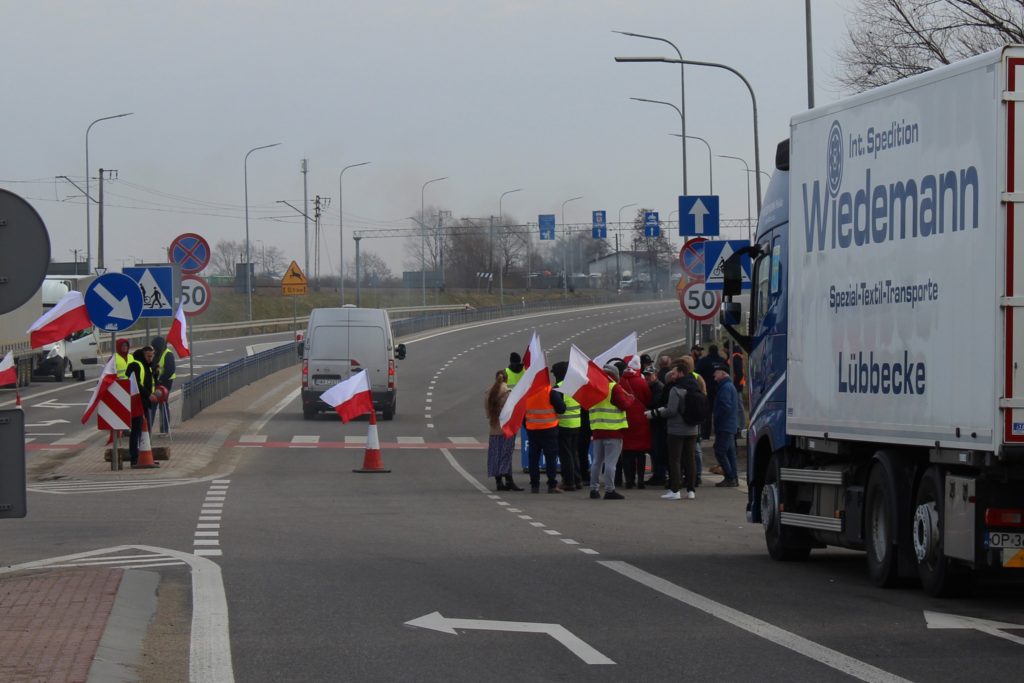
The current Polish-Ukrainian trade turnover, on the other hand, should be compared with that in 2021, not 2022, because only such a comparison shows the change that has taken place as a result of the war. This is crucial because some of the changes in turnover in 2023 can be misleading and used demagogically, e.g. the value of trade in agri-food products decreased compared to 2022, but is still significantly higher than in 2021.
These changes were not necessarily due to volume differences in trade but also to large price fluctuations, including, for example, the price of grains. In 2021, a tonne of grain used to cost around PLN 1,200, later it rose to PLN 2,500, and now it costs PLN 600. This, by the way, along with a parallel increase in production costs caused by inflation, for Polish farmers means a sharp drop in the profitability of their production.
Polish exports have also been boosted by products that were produced to a limited extent in Ukraine during wartime. An example is processed food. Compared to 2021, in 2023, exports of these products increased by as much as 50% and amounted to almost EUR 600 million. This growth, however, is temporary, as Ukraine’s potential is bigger than in Poland.
EP: What was the main reason for the border crisis and could it have been avoided?
PS: It resulted not from the EU decision to temporarily lift customs duties on Ukrainian exports, but due to the fact that it was done in a way that was not sufficiently planned and controlled.
Some goods that were supposed to only transit Poland remained here. There were inaccuracies relating to the classification of goods. For example, grains were labeled as intended for industry to avoid border quality controls, but once in Poland, they restored their food status and were sold as normal food.
Such cases, even if they were few, shocked Polish farmers.
In a similar way, the few incidents of grain dumping upset public opinion in Ukraine. Hundreds of thousands of tonnes of Ukrainian grain and other agri-products have passed through Poland without problems, while single incidents have greatly heated up negative emotions.
Certainly, the whole transit process could have been better monitored, but, on the other hand, it would have slowed down Ukrainian grain exports.
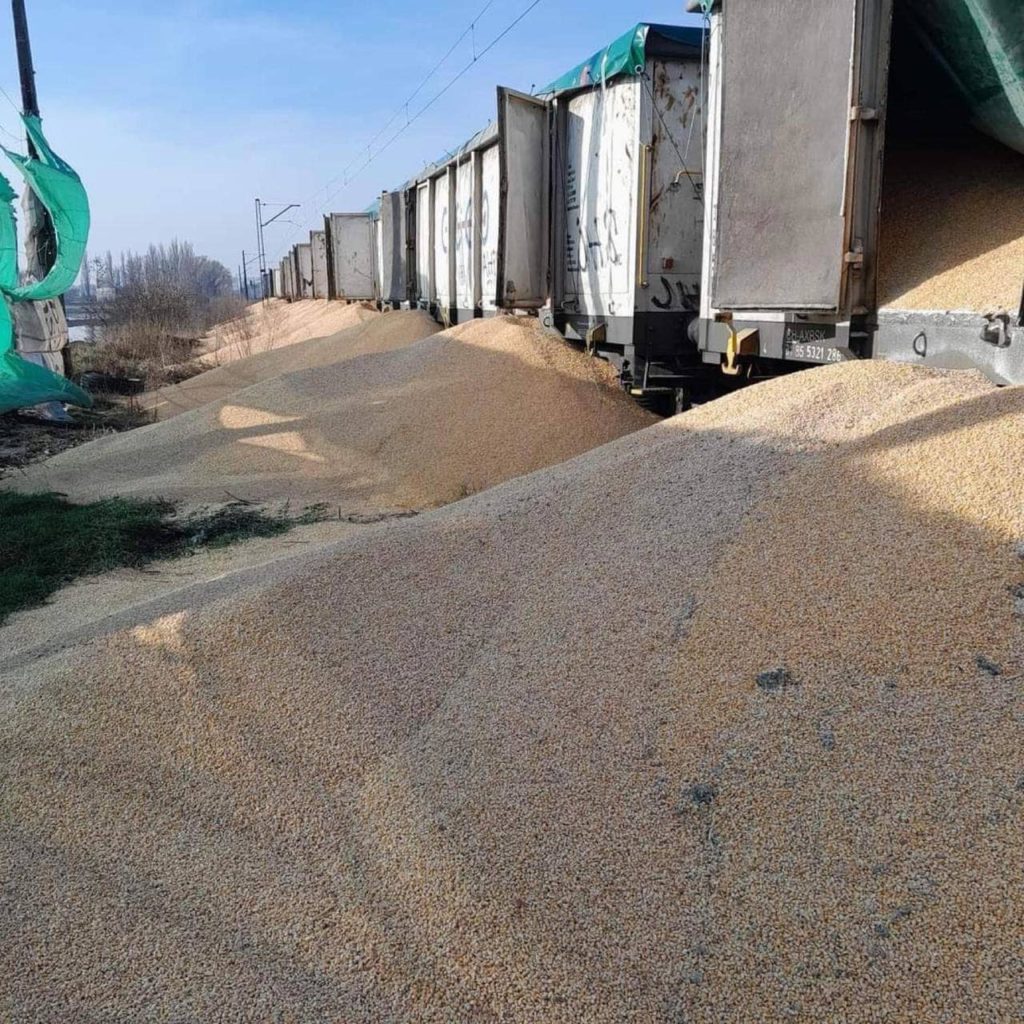
EP: Besides farmers, the border was also blocked by Polish hauliers. What do these two groups of protesters have in common?
PS: Their problems are quite similar. The support for the Ukrainian economy by allowing Ukrainian transport companies to enter the EU market without the previously required permits was intended to be limited to import and export of goods to Ukraine.
In practice, some Ukrainian hauliers also took freight from clients to be transported within the EU.
Meanwhile, companies from the EU are subject to many limitations in the provision of services in other countries of the European Union. Again, as with agricultural production, it is a much cheaper competition.
On top of this, after the opening of the market, many Ukrainian companies significantly increased the number of trucks. Obviously, Ukrainian companies have seized the opportunity and it is hard to blame them for this, but Ukraine cannot be surprised that Poland and the EU want to limit this.
Another aspect is the approach to Polish drivers in Ukraine. When they returned to the EU with no goods, they had to wait for several days at the border on the Ukrainian side, while Ukrainian drivers did not have to queue.
EP: How has the draft five-point agreement plan presented by Prime Minister Shmyhal in February been perceived in Poland?
PS: This proposal was made when the situation was already very tense. One has to wonder why reaching a bilateral agreement earlier was impossible, similar to the ones Kyiv concluded with Romania and Bulgaria. Such an agreement should have been concluded a long time ago.
There was also a certain bitterness on the Polish side and a feeling that we were being treated asymmetrically by our Ukrainian partners. Those things beneficial to Kyiv were taken as granted, e.g. when Poland, even against the position of other countries, provided military aid (i.a. 240 tanks given already in the spring of 2022) or when Poland decided to open its border and forced the European Union to grant special status to Ukrainian refugees, what relieved Kyiv of the need to take care of additional millions of IDPs.
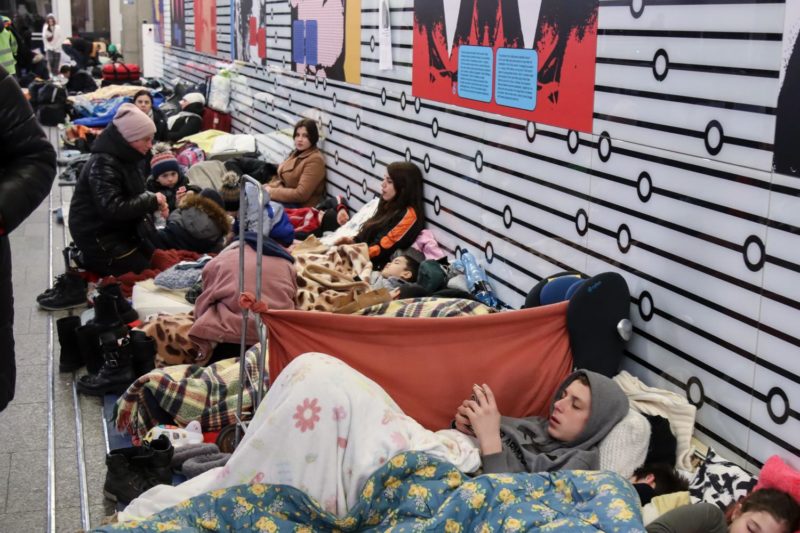
However, in a conflict situation, instead of looking for a compromise together, Kyiv often asks the EU to force something on Poland. Nobody likes that sort of situation.
EP: The border blockades might indirectly result in the partial reintroduction of customs duties on imports of Ukrainian goods into the European Union. This raises concerns about the negative impact on Ukraine’s integration into the EU.
PS: It would probably be better for Polish food producers if Ukraine were already in the EU. Ukrainian food, after meeting the EU’s quality requirements, would be admitted to the European market, but prices would no longer be as competitive as they are y waiver of customs duties was a gesture of solidarity and was not made because Ukranow.
However, it is important to remember that the 2022 decision about temporarine has met the requirements and become a member state of the EU.
It cannot be the case that a country does not comply with the EU norms but can benefit from access to the single market.
Piotr Soroczyński, director of the Economic Policy Office at the Polish National Chamber of Commerce
Ukraine has just started the integration process. To join the EU, Poland had to adapt in many areas, completely open up economically to other countries, adjust regulations, fight corruption, and meet standards, e.g. in the production of dairy products, meats, etc.
Even after Poland joined the EU, it was not possible to sell anything in the old EU countries as long as each factory was not certified and farmers did not begin to comply with EU rules. It cannot be the case that a country does not comply with EU norms but benefits from access to the single market.
Before the opening of the single market, transitional periods will be necessary for Ukrainian agriculture. As the norms are met, the market will gradually be opened.
EP: The situation of Poland before its accession to the EU can not be compared with the current situation of Ukraine, which is fighting for independence….
PS: Poland is aware that the situation of Ukraine is particular and does not stop providing military, logistical, and political support. However, the authorities of a country that finds itself in a situation like Ukraine can have two completely different attitudes.
One is that it tries to behave in a friendly manner towards all the countries that support it, whereas they did not have to do this—Poland has no alliance obligations towards Ukraine. The other attitude is to escalate demands to their partners.
Despite a lot of sympathy for Ukraine, this second attitude is extremely difficult to accept. It also provides more fodder for people with extreme views. Not only Ukraine, but also Poland are targets of information warfare, in which foreign powers want to fuel the tension and antagonise us. Therefore, it is necessary to cool down emotions.
EP: Only two professional groups protest, but other industries suffer consequences, and at the end of the day, both Poland and Ukraine are losing.
PS: Both sides should understand it equally and be prepared to compromise. Our economic relationships are not just about transport and agri-food trade.
Once in a while, a dispute erupts over some segment of the market. Then, we try to make arrangements and settle the issue, but usually from a very narrow perspective.
There should be a large Polish-Ukrainian bilateral agreement indicating areas important for both sides. We should be talking about the whole market, not just certain segments, balancing between different sectors.
It may turn out that in one area, Poland is ready to make more concessions to Ukraine, and vice versa. It is crucial that such negotiations, but also our entire bilateral relationship, are founded on mutual understanding and partnership.
Related:
- Ukraine seeks to end Poland border blockade with 5-point plan
- How to unblock the Ukrainian-Polish border crossing for good
- Poland’s paradox: blockading Ukraine trade, continuing Russia imports




